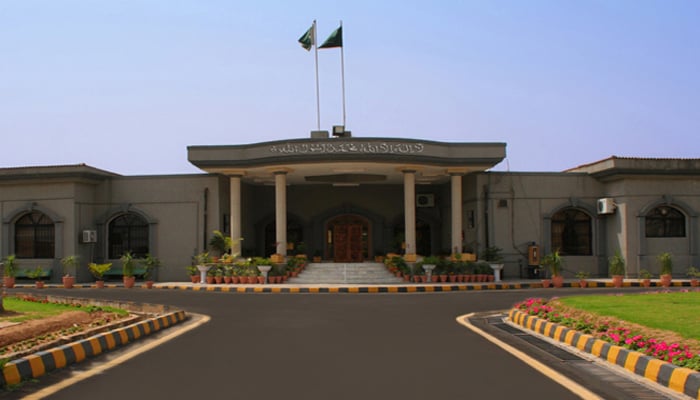
ISLAMABAD: The Islamabad High Court on Thursday disqualified Foreign Minister Khawaja Muhammad Asif for concealing assets, making him the latest politician to lose membership of the parliament under Article 62 (1) (f) of the Constitution.
Earlier, prominent among the politicians to face the disqualification by the courts for not fulfilling the criteria of being Sadiq and Ameen are former prime minister Nawaz Sharif, and Pakistan Tehreek-e-Insaf leader Jahangir Khan Tareen.
Some other lawmakers have also lost their seats in the National Assembly and the Senate over the last few years.
Ironically, most of them were dragged into the courts by their fellow politicians for one reason or the other.
The courts, particularly the Supreme Court, have faced severe criticism from politicians for punishments they have handed down.
Political commentators and legal experts have long urged the politicians to resolve their issues in the parliament instead of approaching courts.
The Islamabad High Court's decision which has disqualified Khawaja Asif has also mentioned this tendency on part of the politicians.
Authored by Justice Athar Minhallah, the paragraph 33 of the 35-page verdict details the reasons for taking up applications filed by politicians :
"It is not a pleasant duty for any Court to be called upon to examine and exercise powers of judicial review which may lead to an elected representative being disqualified as Member of the Majlis-e-Shoora (Parliament).
In the words of Hamood-ur-Rehman, Chief Justice, in the case of titled “State vs. Zia-ur-Rehman” [PLD 1973 SC 49], while exercising power of judicial review, the judiciary claims no supremacy over the organs and that it is a duty assigned to the Courts to see that the Constitution prevails.
In the judgment rendered by a Bench consisting of seven Hon’ble Judges in the case titled “Ishaq Khan Khakwani and others v. Mian Muhammad Nawaz Sharif and others” [PLD 2015 SC 275] it has been held that “Thus the consistent view of the Courts has been that if the determination of any question raised before the Court requires interpretation or application of any provision of the Constitution the Court is obliged to adjudicate upon the same notwithstanding that the action impugned or the questions raised has political overtones".
However, when political forces, instead of settling disputes at the political forums, particularly the Majlis-e-Shoora (Parliament) resort to the Courts, it has consequences not only for the institutions but the litigant public as well. This conduct of political forces lowers public confidence in the Legislature on the one hand and on the other hand exposes the institution of the judiciary to the controversies of adversarial politics.
The political forces are expected to settle their grievances before the political forums rather than taking the precious time of the bona fide litigants awaiting justice to be dispensed.
Parliament is a symbol of unity of the Federation and the peoples will. Parliament deserves utmost respect and its prestige and public confidence depends on the conduct of its Members who represent the actual stakeholders i.e. the people of Pakistan.
It would have been appropriate if the political party to which the Petitioner belongs had raised the issue at hand in the Parliament before invoking the jurisdiction of this Court.
It is ironic that Pakistan is amongst the few countries where a formal code of ethics and conduct for Members of the Majlis-e-Shoora (Parliament) and the Cabinet has not been prescribed so as to avoid situations such as have been observed in the facts and circumstances of the instant petition.
We have handed down this judgment with a heavy heart not only because a seasoned and accomplished political figure stands disqualified but more so because the dreams and aspirations of 342,125 registered voters have suffered a setback."

 13
13




